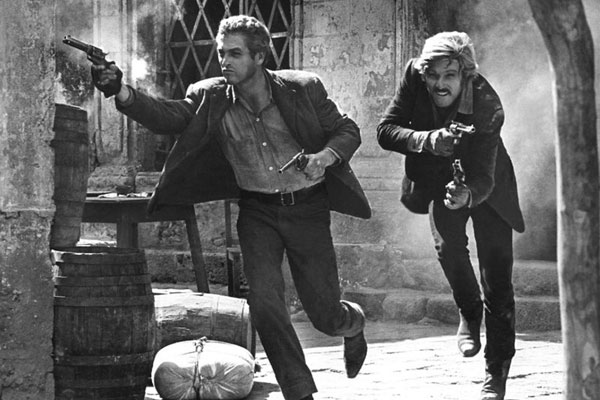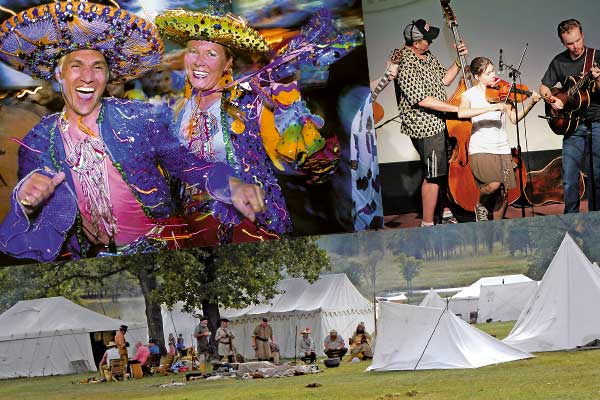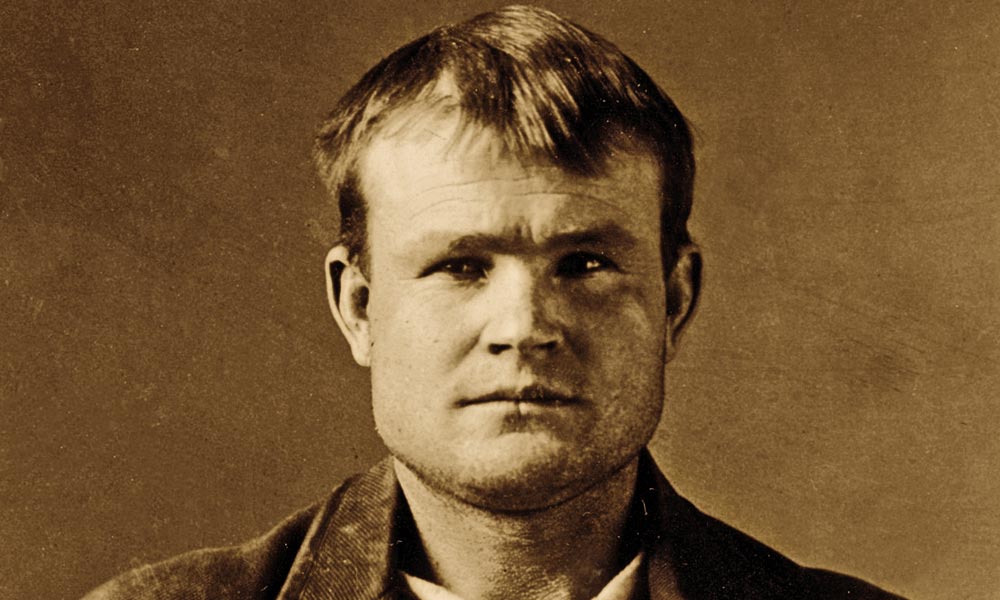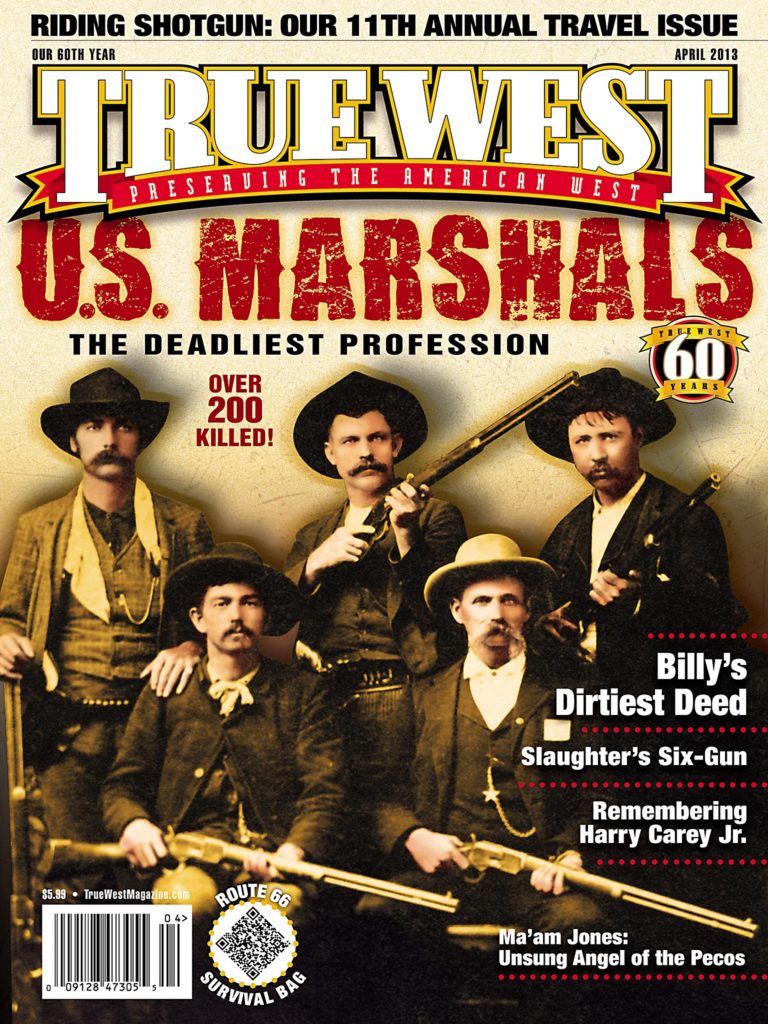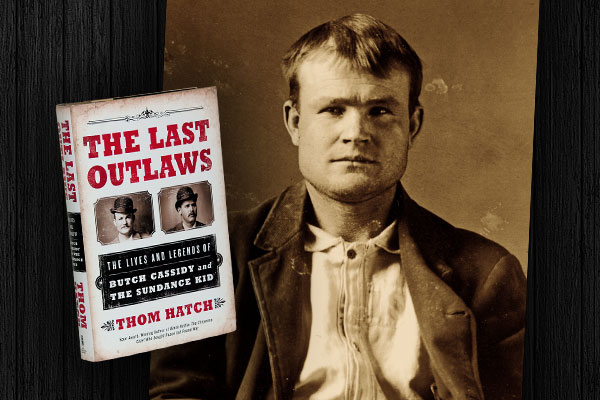 When it comes to author Thom Hatch’s latest effort, The Last Outlaws: The Lives and Legends of Butch Cassidy and the Sundance Kid (New American Library, $26.95), what might seem to be the book’s weaknesses could prove, in the final analysis, to be the book’s strengths.
When it comes to author Thom Hatch’s latest effort, The Last Outlaws: The Lives and Legends of Butch Cassidy and the Sundance Kid (New American Library, $26.95), what might seem to be the book’s weaknesses could prove, in the final analysis, to be the book’s strengths.
The Last Outlaws does draw on a “wealth of fresh research” to “go beyond the myth,” as the book’s publisher asserts. That research is largely other people’s research—nothing wrong with that—and Hatch does a good job of telling the tale without getting in the way. On the biggest question in everyone’s mind, Hatch sides with Anne Meadows: her assertion that Butch and Sundance died in San Vicente, Bolivia, “is more than likely the true story.”
As with any book written on a topic of heated historical debate, Hatch is bound to transgress with one camp or another. All camps would disagree with a statement like this, on p. 193: “Union Pacific officials agreed to parley with Cassidy at Lost Soldier Pass, near the Wyoming-Utah border, forty miles north of Lander.” Perhaps Hatch was tripped up by the parley’s location near the Lander-Rawlins stage road, as this should read north of Rawlins. Either way, neither location is close to the border.
But Hatch shouldn’t trouble any deeply, if only because he employs so many qualifiers in his discussions. To fill in gaps in the historical records, he tells us what Butch or Sundance “might have done” or where they “might have” found work. Outlaw Harry Bass “may have” hinted to Butch that he was kin to outlaw Sam Bass. Did he hint? We don’t know.
Writing of Butch, the Sundance Kid and his girlfriend Etta Place in New York in 1901, Hatch shares this: “There were several notable nightspots that may have become favorites…. They could have taken a ferry out to the Statue of Liberty, and looked back at the New York skyline…. On an afternoon stroll, they may have stopped to watch the workers building the city’s first subway…. And, probably while Etta browsed and shopped at the fashionable ladies’ shops, the two men sneaked over…to see a real, live big-city burlesque show.”
They could have taken, they may have stopped and they probably did specific things. Qualifiers ensure that one is never wrong; that’s why this book is safe. Nonetheless, the qualifying and speculating let the author flesh out a narrative that otherwise would be so much dry reportage.
The history purist finds this kind of woolgathering a distraction, especially when it comes to dramatized interludes. Consider how, in the quoted passage on the opposite page, Butch and Sundance “exchanged a meaningful glance.” Did they? This purported moment came as they awaited the arrival of the pack train on Dead Cow Hill near Tupiza, Bolivia. What observer caught that glance and preserved it for history?
We see the same when Hatch shares with us a heartfelt conversation in a kitchen between a teenaged Cassidy and his mother. Who preserved that lengthy, nuanced chat, verbatim, along with all the kitchen ambiance? This is staging—window dressing—and it hurts historicity, but it enhances readability.
The same can be said for Hatch’s digressions wherein he verbally paints a picture of cowboying, 19th-century banks, passenger ships and boomtowns. The reader of True West already knows these things, but not everyone does.
We live in an age when Western literature stands at a threshold. The purists who would decry Hatch’s techniques will not be around forever, and if Western literature is to live on, it must capture a new generation. The average young person of today is urban and techno-occupied. That person has hardly even viewed screen Westerns, much less seen the Hole-in-the-Wall or read a shelf full of Old West accounts. The Western milieu is no given to these readers. They need help. They need context. If more writers would take the broader, longer view, as Hatch does in his readable, balanced and thought-provoking book, we’d have a chance to keep this good thing going, for a long, long time.


